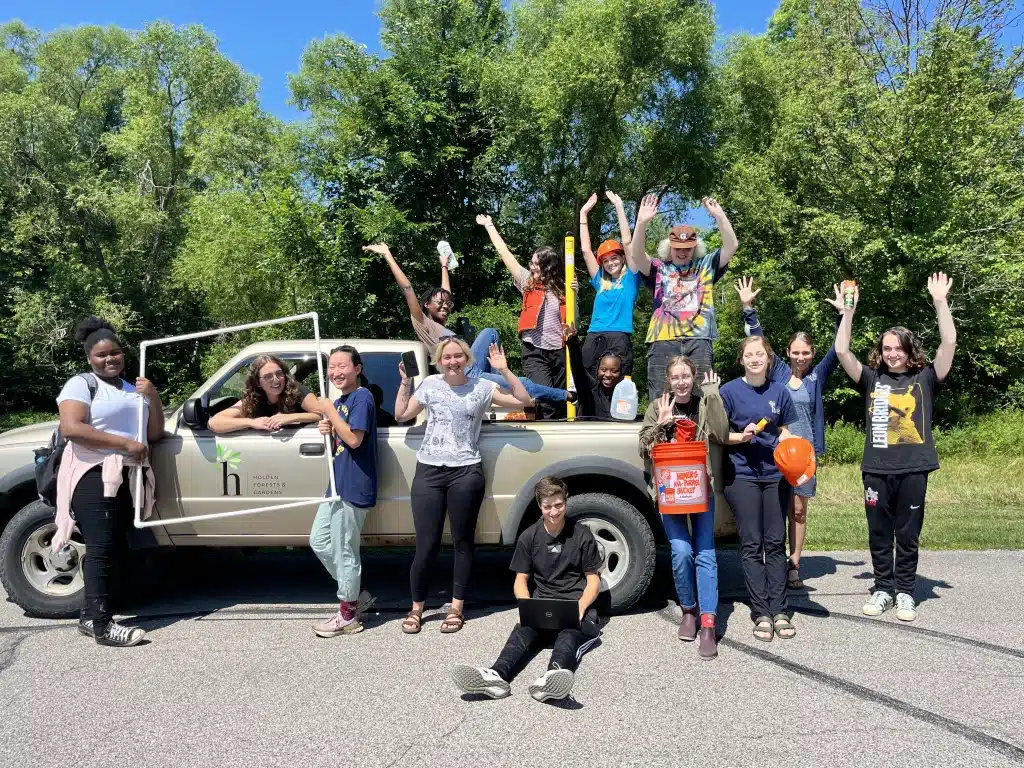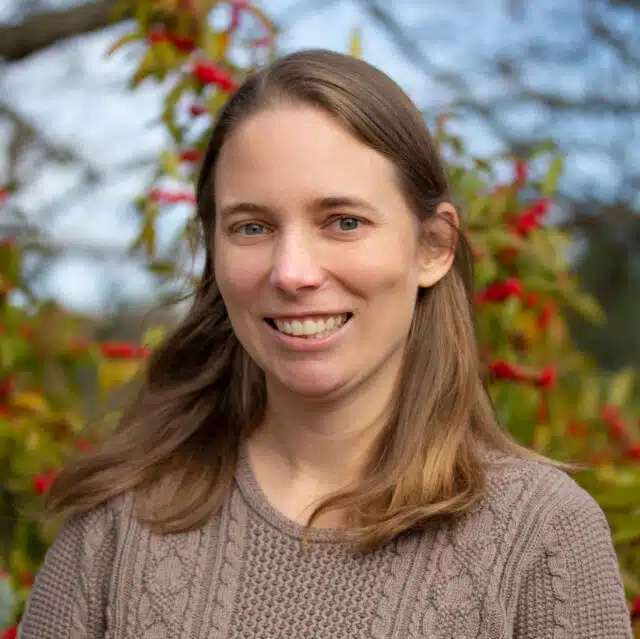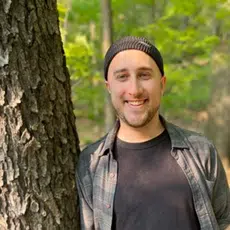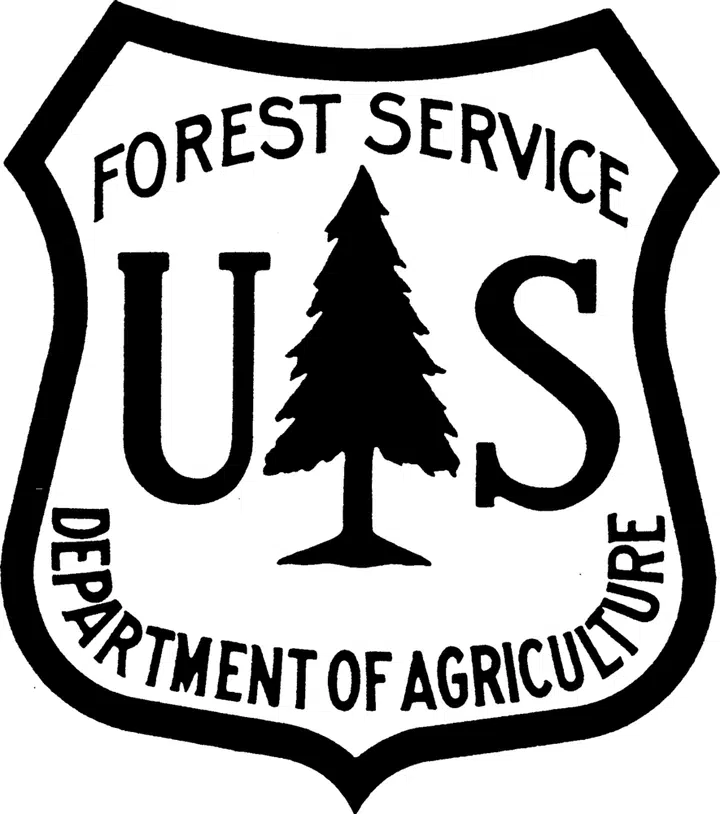Katie Stuble Lab
at the Long Center for Plant & Environmental Science

Restoring Plant Communities & Global Change
We think about the basic mechanisms underlying the maintenance of diversity within communities, as well as how global change may alter these communities and the services they provide. We conduct much of this research in and around the beautiful Holden Arboretum. We tend to focus on two main drivers of global change: climate change and species invasions. We have a particular fascination in how global change is altering interspecific interactions ranging from competition to mutualisms.
Our Projects | Our People | Lab Alumni | Contact Katie | Join Us
Find our research publications on Google Scholar. Follow Katie on BlueSky.
Our Projects
How will global change affect interactions among species?
As the climate changes, so do interactions among species. We are particularly interested in how climatic warming may alter how plant species interact during community assembly. By combining experimental warming in the lab with greenhouse and field studies, we are working to understand how increasing temperatures may alter competitive relationships between native and non-native plants to reshape our natural spaces.

How will global change affect interactions among species?
As the climate changes, so do interactions among species. We are particularly interested in how climatic warming may alter how plant species interact during community assembly. By combining experimental warming in the lab with greenhouse and field studies, we are working to understand how increasing temperatures may alter competitive relationships between native and non-native plants to reshape our natural spaces.

How can species interactions inform ecosystem restoration?
Degraded ecosystems abound. The eastern half of the United States is full of land in varying stages of reforestation post-agriculture. While trees often repopulate these spaces, they typically retain evidence of past agricultural land use (legacies), ranging from reduced understory diversity to high levels of invasion. Our research considers ways in which we might account for interactions among species when designing restoration strategies for these forests. Such strategies may include manipulating levels of competition by woody invaders, thinning canopy trees to enhance forest productivity, or restoring soil microbial communities as a means of enhancing diversity in the plant community.

How variable are interspecific interactions in space and time?
We are studying the extent to which the strength and outcome of competitive interactions is conditional on the abiotic environment. We are also examining the importance of priority effects in plant communities, and how long the signature of the competitive advantage conferred by priority is evident in the composition of plant communities.
Our People

Katie Stuble, PhD
Director of Research
Plant Biologist & Director of Research Katie Stuble has a Bachelor of Arts from St. Mary’s College of Maryland. She earned her Master’s in Ecology at the University of Georgia and a Ph.D in Ecology and Evolutionary Biology from the University of Tennessee. She took her position as a research scientist at Holden Forests & Gardens in 2016.

David Jenkins, MS
Research Specialist
I am an ecologist primarily interested in how community and population dynamics respond to climate change and other anthropogenic pressures, spatial dynamics of biodiversity, land use transitions, and conservation. I work as a research specialist in Dr. Katie Stuble’s lab at the Holden Arboretum, where I mainly study community assembly in forests, impacts of invasive species, and plant phenology through a combination of field studies and greenhouse experiments.

Brianna Shepherd
Research Specialist
As a research specialist in the Stuble Lab, I am leading the Beech Leaf Disease forest monitoring research project. Started in 2023, this project aims to explore and quantify changes in the forest community as forests are impacted by Beech Leaf Disease. The goal of this study is to better understand the implications of dieback of beech trees for forest health, forest resource availability, and the future composition of forests. As lead on this project, I oversee surveying and data management.
Lab Alumni
- Alexa Wagner, Ph.D. (Website, Linkedin, ResearchGate)
- Emma Dawson-Glass (X, ResearchGate)
- Rory Schiafo, Lead Technician (X)
Contact Katie
kstuble@holdenfg.org
Long Center for Plant and Environmental Science
Holden Arboretum
Join us!
For open volunteer opportunities, visit the volunteer page for the Holden Arboretum. For open staff positions and internship opportunities, visit the careers page. Prospective graduate students and postdoctoral researchers, please inquire at the email above.




